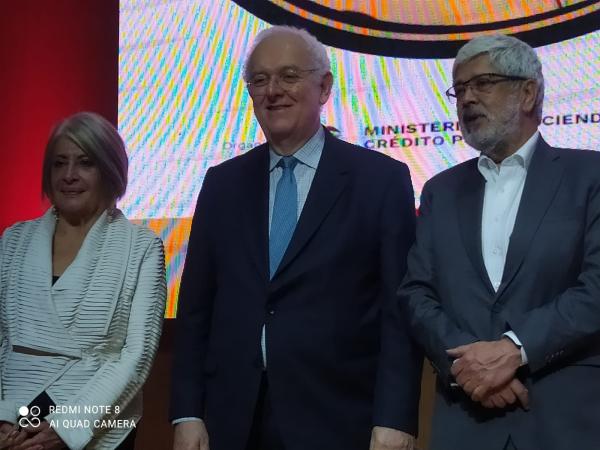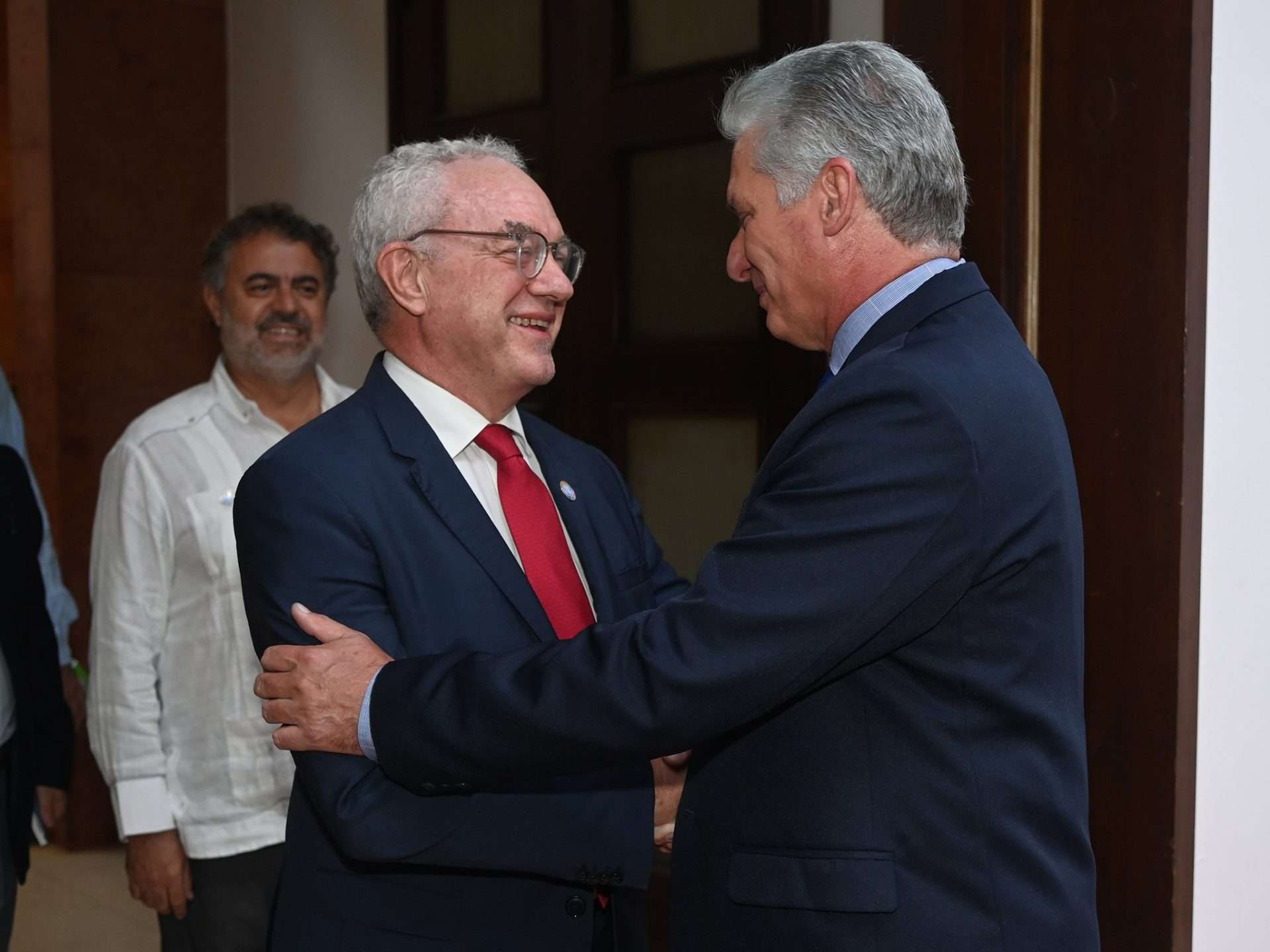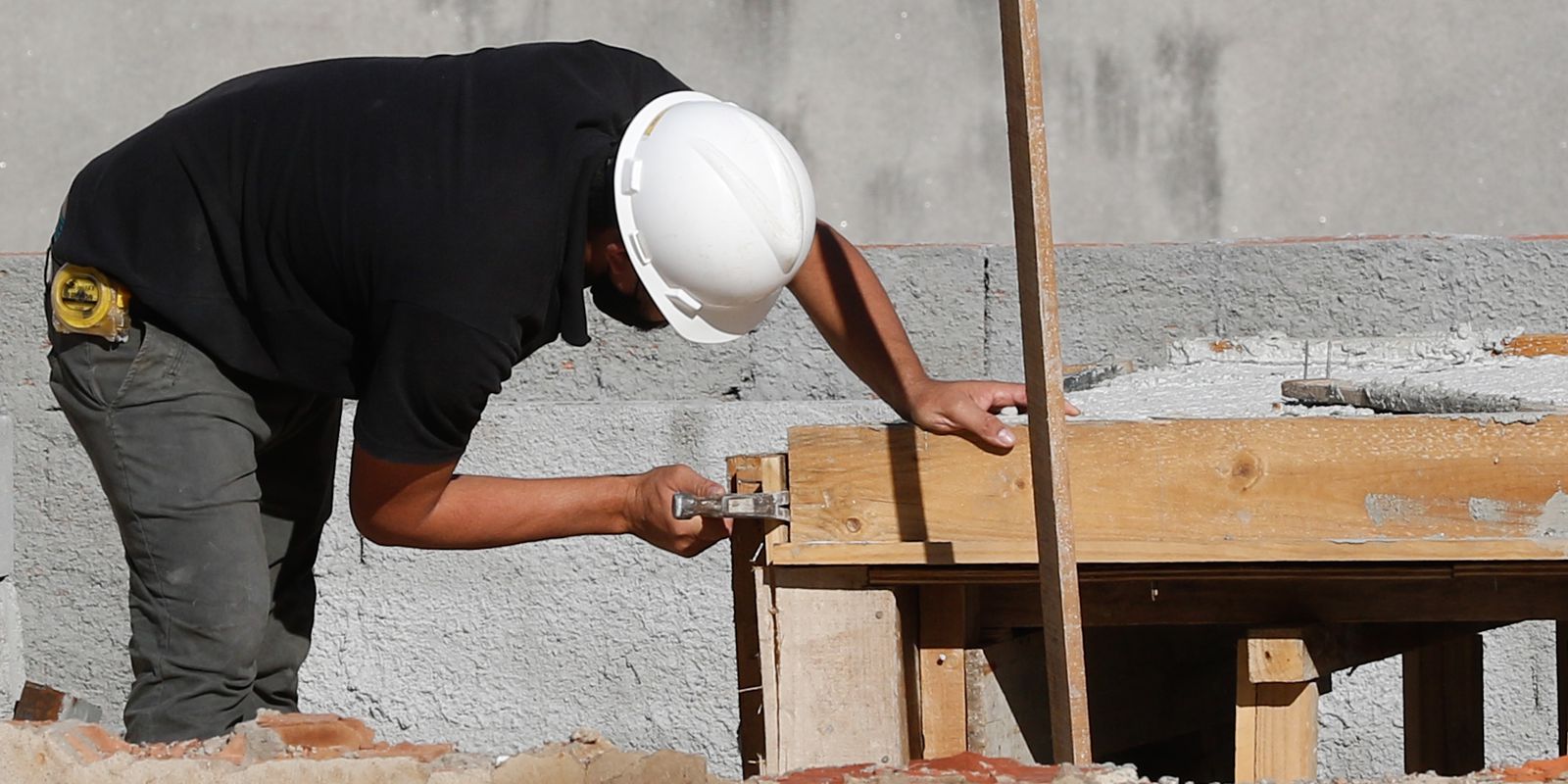The National Government, headed by the Ministry of Finance and Public Credit; the Ministry of Agriculture and Rural Development; the Ministry of Commerce, Industry and Tourism; the Bicentennial Group; and Banca de las Oportunidades, announced this Tuesday that it will promote the placement of one million credit operations for Colombians who do not have access to formal financing.
(Financial inclusion increases, but differences remain).
This is the credit inclusion strategy of the popular economy (EP) “I THINK, a credit to meet us”which aims to meet the financing needs of low-scale productive units, traditionally neglected, throughout the country and in all sectors of the economy, and to replace the onerous informal sources that prevail.
“CREO, a loan to get to know each other, designed with the support of the Inter-American Development Bank (IDB), stands as the most inclusive strategy ever executed in Colombia and which aims to close historical inequalities and generate accessible and flexible financing, as a key lever to promote the generation of capacities, financial well-being and the transformation of the living conditions of the popular economy”, stated the Minister of Finance and Public Credit, José Antonio Ocampo.
The challenge is pressing. According to the DANE Microbusiness Survey (EMICRON), at the end of 2022, of the 5.3 million microbusinesses in the country, only 30% have formal financing. In addition, one in four micro-businesses that applied for a loan did so through the “drop by drop”. This number has been growing since the pandemic.
(Formal credit, technology and other challenges of the banking sector).
“Itinerant businesses, shopkeepers, recyclers and low-income agricultural producers need access to financing and develop financial capacities to grow their businesses or productive projects. Many of them are at the mercy of ‘drop by drop’. For this reason, we seek to offer different alternatives that become the gateway to the financial system”, said Paola Arias, director of Banca de las Oportunidades.
The cornerstone of the strategy is public banking, which is part of the Bicentennial Group. Bancóldex, Finagro-FAG and FNG, in an articulated and coordinated manner, will activate a package of financial and non-financial services to leverage popular productive loans through the network of financial service providers. The Agrarian Bank of Colombia will lead the placement of financing for the Popular Economy. For its part, the cooperative financial sector, given its vocation and closeness to the population, will be a key ally of this strategy, which is why the Government has been working, together with the sector, on a strengthening program.
Credit inclusion forum.
To encourage the participation of more entities in the Popular Economy segment, the strategy will focus on strengthening and expanding the network of financial service providers, especially cooperatives, Fintech, niche banks, microcredit NGOs and commercial banks. Likewise, in promoting innovative and disruptive methodologies; and accelerate government initiatives, such as open finance and data schemes, looking for new technologies to leverage the irrigation of credits for the PE.
“The Bicentennial Group has among its objectives to support the national government to identify and correct market failures, such as the lack of coverage of financial services in the most remote regions or the absence of information that restricts access to credit for the most remote sectors. vulnerable. This strategy, through the participating companies, will tend to bring the people of the EP closer to fulfilling their dreams, contributing to the development of the country”specified Adriana Mazuera, legal representative of the Bicentennial Group.
“I THINK, a credit to meet us” It is founded on four central columns or axes:
– Opportunities to access credit for those who have traditionally been underserved-
– Promotion of group and associative financing methodologies.
– Management and accompaniment in the territory of the population.
– Generation of financial capacities of the PE.
(Financial inclusion improves in Colombia and exceeds the regional average).
The first strategic column focuses on providing access to credit to those citizens who, up to now, have not participated in the financial system. The goal is to make the popular economy visible, promoting its financial inclusion.
The entities of the Bicentennial Group, aligned with this purpose, will offer a range of inclusive instruments: first, silent guarantees aimed at improving risk management; secondly, concessional financing, whose purpose is to promote operational innovations that promote access to resources under favorable conditions; and finally, an incentive for good payment, which promotes healthy and responsible financial habits among the beneficiaries.
The first two incentives will adopt a territorial and gender approach, reaffirming the commitment of the National government with equality and equity in all spheres of society.
Throughout this first year, the progressive implementation of incentives will be carried out in 100,000 credit operations. The strategy recognizes the importance of the agricultural sector for the productive apparatus and in the life of rural communities. For this reason, specific incentives have been assigned for 34,000 additional operations in this sector.
While the financial entities finish advancing the technological and operational developments, it is estimated that the first agricultural credits would begin to be placed progressively as of May of this year.
The second edge promotes popular group financing as a key element to access resources that enhance the productive activities of the PE, activating the social fabric of its community and of groups that share common interests and objectives. Finagro has up to $7 billion to mobilize in the different lines of credit by 2023, including associative and integration schemes.
The third pillar seeks to bring financial service providers closer to the population. For this, the Government hopes to launch the popular economy fairs in April, which bring the offer of products and services closer and provide advice and financial support to Colombians who live in the most remote areas of the country.
The fourth column aims to create the virtuous circles of financial inclusion and the sustainable development of the financial capacities of the PE. The Bicentennial Group will launch an awareness program to promote formal credit and publicize the disadvantages of informal financing mechanisms, the benefits of growing through the credit products of the formal financial system and the new products that will open the doors from financial inclusion to PE.
In the gear and as an enabling factor of this strategy, in this four-year period, the Government will lead the implementation of an open data scheme, aimed at facilitating the availability and exchange of information among people. This information, essential to reduce frictions related to the knowledge, relationship and profiling of the client, rests on a wide spectrum of entities from the financial sector as well as from the real sector and from the government. Having an open data scheme will allow strengthening alternative risk analysis models in the country, based on transactional information from people and from various sources.
BRIEFCASE








